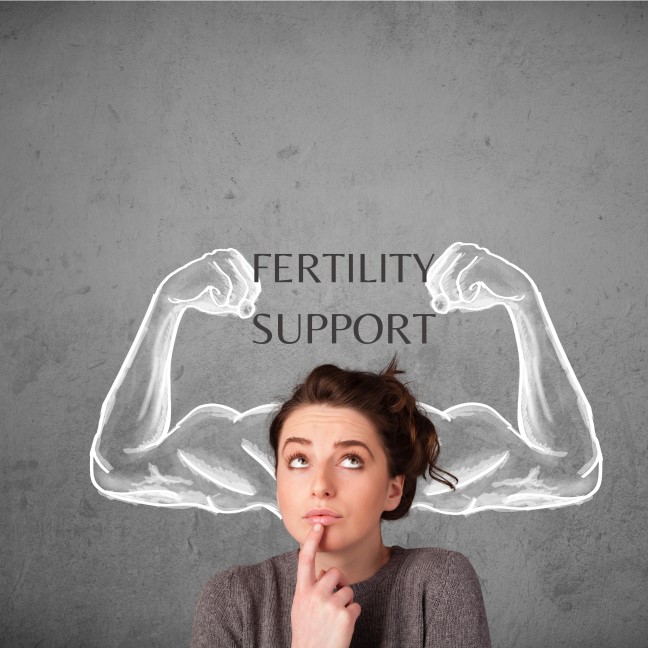
Are you planning on starting or adding to your family in the near future? Wondering which nutrients can support your fertility and increase your chance of falling pregnant naturally?
There are several key nutrients that can prevent miscarriage and/or defects during pregnancy. Let’s take a closer look at the nutrients you want to include while trying to conceive.
Zinc
When it comes to male fertility, zinc is the king of nutrients. It supports a healthy hormone balance, and it protects against compounds such as heavy metals. Low levels of zinc can lead to low testosterone and impairs sperm production and quality.
However, zinc is also important for female fertility. Zinc is involved in ovulation and regulating the menstrual cycle, as well as acting as an antioxidant. One study found that zinc deficiency can reduce the ability of egg cells to divide and be fertilised.
Dietary sources of zinc include fish and seafood, red meat, poultry, beans, nuts, wholegrains and dairy products.
Folate
Folate is probably the best-known nutrient for conception and pregnancy – and for good reason.
Low levels of folate are linked to neural tube defects, as well as a higher risk of miscarriage. Higher dietary intake of folate is associated with higher levels of progesterone, which is critical for supporting conception.
Dietary sources of folate include vegetables, nuts, beans, seafood, eggs, meat, poultry and wholegrains.
Iron
Another critical nutrient for preconception and pregnancy is iron.
Some animal studies suggest that iron plays a role in the maturation of the egg. One study found that iron consumed via supplements and plant-based iron sources were associated with a lower risk of infertility caused by ovulation disorders. However, it’s important to know your iron levels before using a supplement.
Low iron is also associated with issues during pregnancy and infancy such as premature birth, anaemia in the baby, impaired brain and cognitive development and growth faltering (failure to thrive).
Dietary sources of iron include red meat, eggs, fish, beans and legumes, nuts and seeds. Iron from animal sources (haem) is easier for the body to absorb than plant sources (non-haem).
Omega 3s
Omega-3 fatty acids are important for both partners to support fertility. Unfortunately, the average diet tends to be too high in omega 6s and low in omega 3s.
Studies have found that women who consume more omega-3s had a greater chance of pregnancy than those with a lower intake. Others found that men who consumed a higher intake of omega-3s were more likely to have healthy sperm than those with a low intake.
The best dietary sources of omega-3s are fish and seafood. Plant-based omega-3 sources include nuts and seeds.
However, it’s important to remember that plant-based omega 3s have to be converted by the body before it can be used. Only a small percentage is converted, so a supplement may be warranted if you are vegetarian or vegan.
Other key nutrients
As fertility and pregnancy are complex processes, there are dozens of nutrients involved. Some other nutrients that play a role in fertility include:
As you can see, there is a lot to consider when it comes to nutrition and planning a pregnancy!
How can I include all of these nutrients into my diet?
The simplest way is to include a variety of wholefoods on a daily basis. Wholefoods include:
All wholefoods are rich in nutrients, but some have higher levels of the above nutrients than others. That’s why enjoying a variety is the best way to cover all of the bases.
If you have any kind of chronic condition such as PCOS, endometriosis, autoimmune conditions or chronic pain, you may have a higher requirement for one or more of these nutrients. In this case, it’s best to work with a health practitioner who can advise you on supplements.
Are you concerned about getting the right nutrients to support your fertility? Here at Burnett House, we take an integrative approach to fertility, hormone balance and pregnancy.
Our acupuncturist Jamie offers acupuncture to help with symptoms such as stress, pain and fatigue.
Our naturopath Trish can arrange any relevant testing and create a tailored treatment plan to optimise your nutrient intake and support your fertility. She can also recommend high-quality supplements if you have a higher requirement for specific nutrients.
To book an appointment with Jamie or Trish at our Bundaberg clinic, call us on (07) 41522372
tment, call us on (07) 41522372